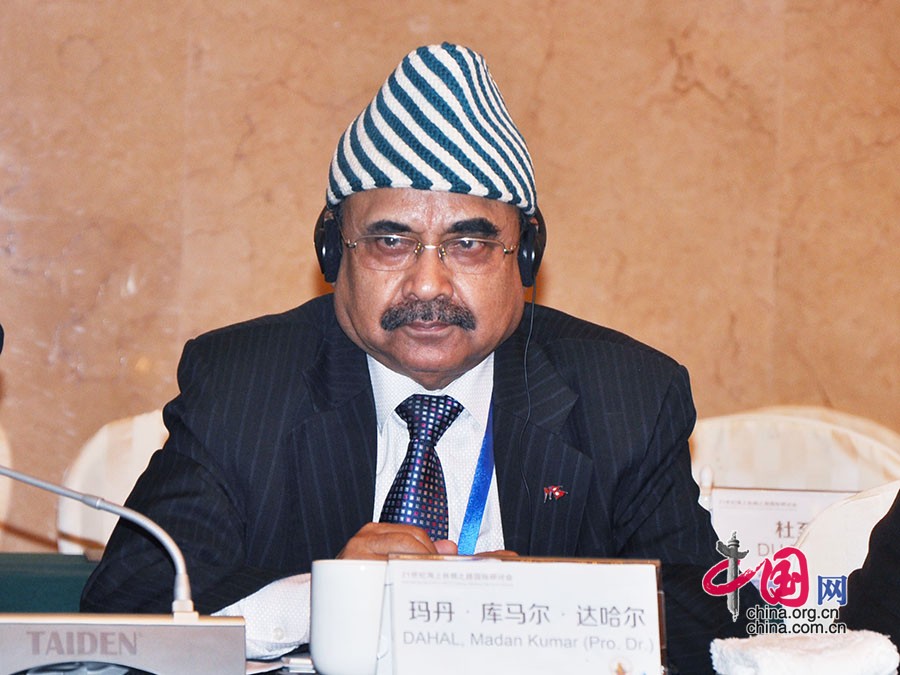Silk Road not Marshall Plan: scholars
- By Zhang Lulu
 0 Comment(s)
0 Comment(s) Print
Print E-mail China.org.cn, February 12, 2015
E-mail China.org.cn, February 12, 2015
Benefits
Many countries have expressed their wish to participate in the initiative.
Dr. Madan Kumar Dahal, chairman of the Mega Bank Nepal Limited, believed that the 21st Century Maritime Silk Road could benefit his country immensely.
|
|
|
Dr. Dahal, chairman of the Mega Bank Nepal Limited, is eager to see his country be part of the initiative. [Photo: China.org.cn] |
Though Nepal is an inland country with no access to the sea, Dr. Dahal was eager to see his country be part of the initiative.
According to him, the landlocked traffic in Nepal has greatly impaired the country's economic development.
"A landlocked country like ours would benefit from this Maritime Silk Road through connecting our rivers to the sea. There is need to develop navigational infrastructure which requires huge investment, and we expect China to build navigational infrastructure in the future."
He wished to see China cooperate with Nepal in trade, investment and hydropower under the framework of the 21st Century Maritime Silk Road.
One of the most noteworthy ongoing projects under the framework of the 21st Century Maritime Silk Road is the Colombo Port City project, with an investment of US$1.4 billion, the largest port project in Sri Lanka.
The project is shortly halted after Sri Lankan President Maithripala Sirisena swore in the recent weeks, but it has now fully resumed after passing the environment impact assessment, Zhang Baozhong, vice president of the China Communications Construction Company Limited (International) which is behind the project, told China.org.cn.
The project will create up to 90,000 jobs and greatly benefit local people, he said.
Citing the project as an example, Sri Lanka-born Kanishka Goonewardena, a professor at the University of Toronto, noted that China and other countries along the route should think of better ways to deliver the benefits of the 21st Century Maritime Silk Road to everyone and ensure equal development opportunities.






